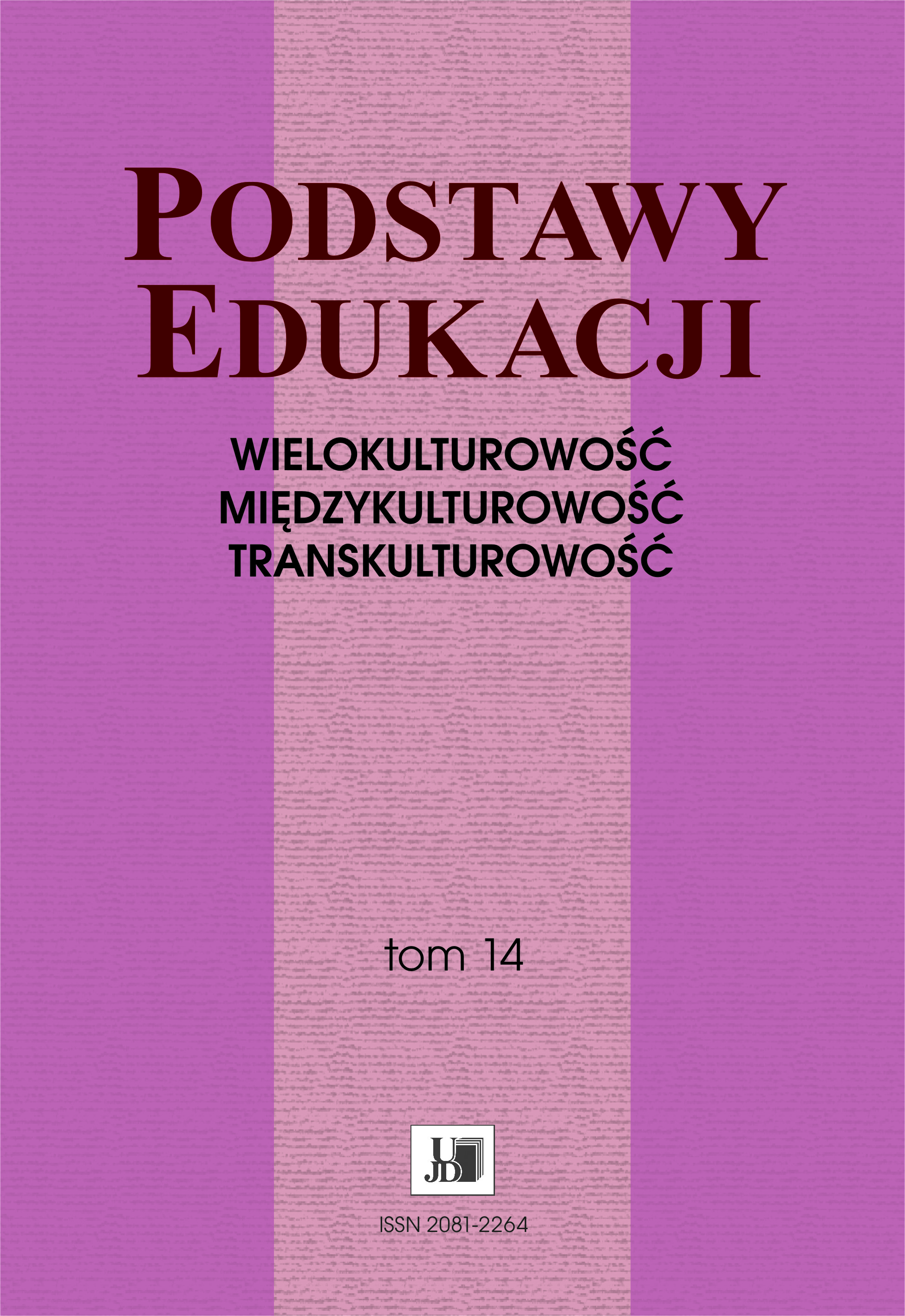Abstract
This article presents the description of the course in Polish Sign Language conducted as an MOOC (Massive Open Online Course), and, in particular, the possibility of the implementation of inter-cultural aspects into the curriculum of Polish Sign Language as a foreign language with the application of this very formula. The technical structure of the course itself, and also methodological assumptions behind conducting it, are presented in this article as well. The description of the emplotment of the contents contained in it as a method of counteracting the phenomenon of abandoning the course and including intercultural contents into the curriculum of the course. What is discussed as well is the advantages resulting from including intercultural elements into instruction into Polish Sign Language.
References
Goopio, J., Cheung C. (2020): The MOOC dropout phenomenon and retention strategies, Journal of Teaching in Travel & Tourism, 21(2), 177-197, https://doi.org/10.1080/15313220.2020.1809050.
Haugsbakken, H. (2019). Digital Transformation in the Classroom: Storytelling and Scriptwriting in Instructional Designing of MOOCs. European Journal of Education, 2(3), 32-40, https://doi.org/10.26417/ejed.v2i3.p32-40.
Jen-Wei Chang, & Hung-Yu Wei. (2016). Exploring Engaging Gamification Mechanics in Massive Online Open Courses. Journal of Educational Technology & Society, 19(2), 177–203. http://www.jstor.org/stable/jeductechsoci.19.2.177.
Kaczmarek-Kacprzak, A., Muczyński, B., Kurowska-Wilczyńska, K. (2020). NAVOICA – internetowa przestrzeń edukacyjna, Aparatura Badawcza i Dydaktyczna, 25(2), 112—134.
Kaczmarek-Kacprzak, Kurowska-Wilczyńska, K. (2019). Navoica - Polski MOOC, Zeszyty Naukowe Wydziału Elektrotechniki i Automatyki Politechniki Gdańskiej, 65, 35-42, https://doi.org/10.32016/1.65.05.
Karpińska-Musiał, B., Orchowska, I. (2019). Międzykulturowość jako przestrzeń dla transdyscyplinarnej metaanalizy w glottodydaktyce i pedagogice międzykulturowej–pola współ-/niezależności pojęć, paradygmatów i celów kształcenia. Neofilolog, 52(2), 389-410. https://doi.org/10.14746/n.2019.52.2.12
Khalil, M., Ebner, M., Admiraal, W. F., Pivec M, G. J. (2017). How can gamification improve MOOC student engagement?. W: Proceedings of the 11th European Conference on Game Based Learning (s. 819-828). Academic Publishing Limited.
Klemke R, Eradze M, Antonaci A. (2018). The Flipped MOOC: Using Gamification and Learning Analytics in MOOC Design—A Conceptual Approach. Education Sciences. 8(1):25. https://doi.org/10.3390/educsci8010025.
Piotrowska‑Piątek , A. (2017). Trzecia misja szkół wyższych w Polsce w kontekście ich roli w rozwoju regionalnym. Edukacja Ekonomistów I Menedżerów, 44(2), 115-129. https://doi.org/10.5604/01.3001.0010.5936
Robin, B. R. (2016). The power of digital storytelling to support teaching and learning. Digital Education Review, 30, 17-29. https://doi.org/10.1344/der.2016.30.17-29.
Shah D., By the Numbers: MOOCs During the Pandemic https://www.classcentral.com/report/mooc-stats-pandemic/, 19.10.2021.
Shah D., Capturing the Hype: Year of the MOOC Timeline Explained, https://www.classcentral.com/report/mooc-hype-year-1/, 19.10.2021.
Sołtysiak, W., (2014). Wybrane metody kształcenia stosowane w e-learningu akademickim, Podstawy Edukacji, 7, 381-396.
Thirouard M., Cahagne C., Bernaert O., Jehl D. (2019) Storytelling and Innovative Digital Techniques Which Increase Motivation Levels of MOOC Participants. In: Calise M., Delgado Kloos C., Reich J., Ruiperez-Valiente J., Wirsing M. (eds) Digital Education: At the MOOC Crossroads Where the Interests of Academia and Business Converge. EMOOCs 2019. Lecture Notes in Computer Science, 11475. Springer, Cham. https://doi.org/10.1007/978-3-030-19875-6_21.
Zalecenia Rady Unii Europejskiej z dnia 22 maja 2018 r. w sprawie kompetencji kluczowych w procesie uczenia się przez całe życie. Pobrano z: https://eur-lex.europa.eu/legal-content/PL/TXT/PDF/?uri=CELEX:32018H0604(01)&from=en, 19.10.2021.

This work is licensed under a Creative Commons Attribution 4.0 International License.
Copyright (c) 2021 Podstawy Edukacji
